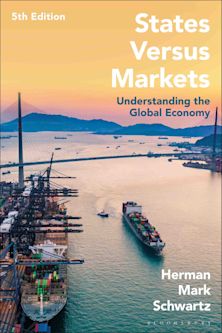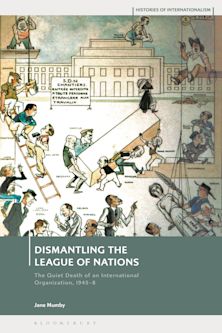Trading with Pariahs
Trade Networks and the Failure of Economic Sanctions
Trading with Pariahs
Trade Networks and the Failure of Economic Sanctions
This product is usually dispatched within 1 week
- Delivery and returns info
-
Free US delivery on orders $35 or over
Description
The past few decades have witnessed a proliferation of economic sanctions, yet there seem to be few examples of sanctions meeting sender states’ goals. Under what conditions do sanctions fail to change the behavior of so-called international “pariah states,” countries who violate various international norms? This book examines the impact of economic sanctions on target states’ trading relationships through social network analysis, a method that has rarely been applied to the study of sanctions. Drawing on UN Comtrade data, Trading with Pariahs: Trade Networks and the Failure of Economic Sanctions shows that the imposition of sanctions can drastically change some states’ trading networks, as states either find new trading partners (in the case of North Korea) or feel the sting of the sanctions from key trading partners (like Iran). Trading networks (such as Myanmar’s) remain relatively stable over time as key trading partners refuse to impose sanctions. Through the theory of weaponized interdependence, Keith A. Preble and Charmaine N. Willis argue that the success or failure of sanctions to change target states’ behavior depends on who imposes the sanctions. Sanctions imposed by the “right” sender states can be successful but also cannot rely solely on policies of isolation to achieve the goals of the sanctions.
Table of Contents
Chapter 2. De-Weaponized Interdependence: The North Korea Sanctions Regime
Chapter 3. Traders with Pariahs: An In-Depth Examination of North Korea’s Key Bilateral Relationships
Chapter 4. Opting for Panopticon? The Myanmar Sanctions Regime
Chapter 5. Making Weaponized Interdependence Work: The Iran Sanctions Regime
Chapter 6. Further Applications and The Potential for Weaponized Interdependence
Product details
| Published | Aug 22 2024 |
|---|---|
| Format | Hardback |
| Edition | 1st |
| Extent | 200 |
| ISBN | 9781666903737 |
| Imprint | Lexington Books |
| Illustrations | 33 b/w illustrations; 7 tables |
| Dimensions | 9 x 6 inches |
| Publisher | Bloomsbury Publishing |
Reviews

ONLINE RESOURCES
Bloomsbury Collections
This book is available on Bloomsbury Collections where your library has access.


































